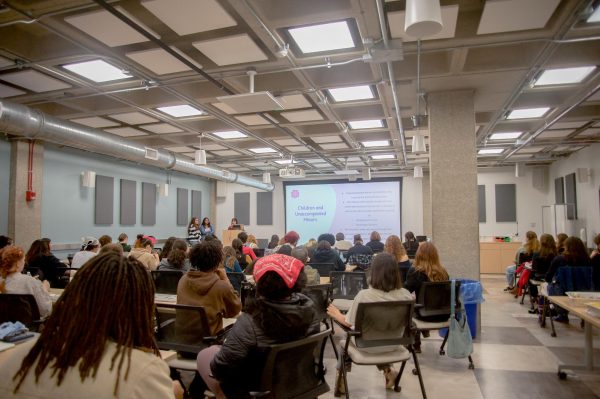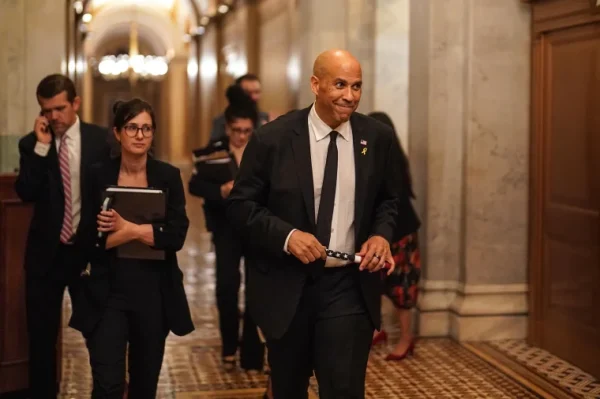Senate Updates on Health, International Students, and Sustainability Committees
The work of the Student Senate is designed to represent and benefit the student body. One way senators do this is by investing in areas suited to their strengths and interests. Below, we describe ongoing Senate committees that seek to directly help students on a day-to-day level — from making a more supportive community in regards to health and happiness to seeking long-term changes to College life, such as making Oberlin more environmentally forward-thinking.
Health and Wellness Committee
One of Senate’s long-term goals is to address issues concerning health on campus — both mental and physical. To that end, Senate has created the Health and Wellness Committee, whose purpose is to brainstorm and execute solutions to these problems.
A major element of this committee’s work has been working with the Jed Foundation — a national, collegiate nonprofit mental health organization — to improve mental and emotional health on campus. Through Jed, this committee is working with staff members at Oberlin to make the campus a safer, more caring community for those struggling emotionally or mentally.
The isolation and stress caused by the COVID-19 pandemic have further added to the strain on students; the work of this committee has become more important now than ever before. Considering how different and complicated these new circumstances are, on-campus life can seem isolated and lonely. Students will need as much support as they can get.
For those who feel as though they need help or support in any way, we are working to make our resources more accessible.
International Students Committee
The International Students Committee designed a survey asking about international students’ needs in terms of career development, health and wellness, and cultural shock. We researched optional practical training and curricular practical training, internships and working opportunities, cultural differences students encountered, and mental and physical health concerns students had. Thanks to Vice President and Dean of Students Meredith Raimondo, we received $150 from the Student Life Committee fund as incentive for the survey. Each student who filled out the survey was added to a lottery for a prize of $150. We also received valuable advice from Josh Whitson at the International Student Resource Center, Matthew Hayden at the Center for Student Success, and Rory Johnson at the Career Development Center.
This Senate committee is also dedicated to alleviating the cultural shock international students may face upon first arrival to the College’s campus. We noticed that international students are more likely to be disengaged during the Title IX Essential Training given by PRSM. Thus, we worked with students who speak a second language to translate the Let’s Make Consent a Conversation brochure into eight languages.
Soon after the shutdown this March, we received reports and photos of a portion problem at the grab-and-go dining halls. In response, senators Wenling Li, Latifa Tan, and Yuetong Chen reached out to Campus Dining Services and agreed to meet regularly with CDS managers to make suggestions, including increasing portion sizes, adding more international groceries, and increasing food diversity. With collective efforts, an anonymous survey about past experiences with dining services was sent out and we collected more helpful feedback.
In the coming semesters, the International Students Committee will continue serving and supporting all international students, no matter what places and situations they may find themselves in. We welcome more students to join us and continue to represent the international student body in the Oberlin Student Senate and among College administrators.
Senate and Sustainability
From green reusable bags to achieving College-wide carbon neutrality by 2025, Senate is engaged in a variety of sustainability initiatives on campus and is committed to propelling the achievement of Oberlin’s commitment to carbon neutrality by 2025.
One major engagement of Senate is maintaining an efficient working relationship with the Green EDGE Fund, a student-managed account providing grants and loans to local sustainability initiatives. The Green EDGE Fund allocates money through Sustainability Grants, Efficiency Loans, and Carbon Management Fund Grants to finance projects within the Oberlin community that promote broad environmental sustainability and/or reduce resource consumption. Some of the projects benefited by the Green EDGE Fund include the reusable men’s trail underwear from the Sexual Information Center and reusable cups at Slow Train Cafe.
The widely used green bag is another product of Senate’s green initiative. Former senator Austin Ward originated the green reusable bag program after applying for the initial fund from the Green EDGE Fund. Collaborating with Bon Appétit, we distributed about 2,000 reusable bags in the spring 2019 semester.
The 2025 carbon neutrality goal is the beacon of Oberlin’s trajectory to environmental sustainability; it also provides a yardstick to measure whether we are really progressive in our sustainability effort. This ambitious and forward-looking goal requires the dedication of faculty, administration, alumni, and students alike. We invite students to take advantage of the Senate platform and join the effort towards environmental sustainability, which defines the future of Oberlin.



